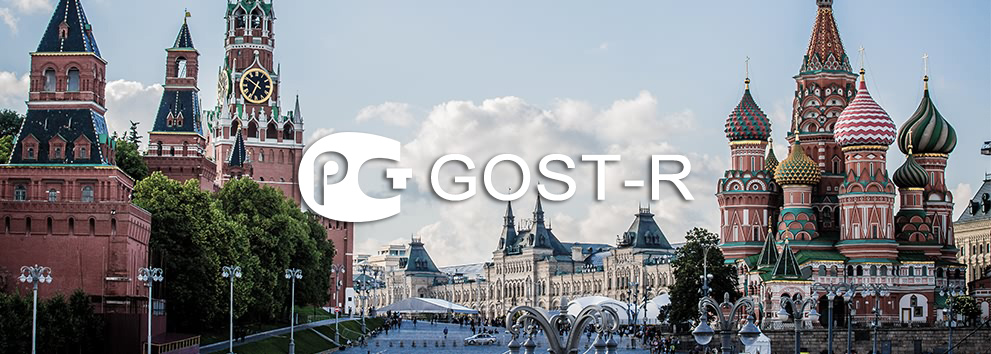What is AIS certification in India? Is AIS certification mandatory?
What is AIS certification in India? Is AIS certification mandatory?,
AIS certification,
▍What is GOST-R Declaration?
GOST-R Declaration of Conformity is a declaration document to prove goods are complied with Russian safety regulations. When the Law of Product and Certification Service was issued by Russian Federation in 1995, compulsory product certification system came into force in Russia. It requires all products sold in Russian market to be printed with GOST mandatory certification mark.
As one of methods of mandatory conformity certification, Gost-R Declaration of Conformity bases on inspection reports or quality management system certification. In addition, Declaration of Conformity has the characteristic that it can only be issued to a Russian legal entity which means the applicant (holder) of the certificate can only be a Russian officially registered company or foreign office that registered in Russia.
▍GOST-R Declaration Type and Validity
1. Single Shipment Certificate
Single shipment certificate is only applicable to specified batch, specified product stipulated in a contract. Specific information is strictly under control, such as item name, quantity, specification, contract and Russian client.
2. Certificate with validity of one year
Once a product is granted the certificate, manufacturers can export products to Russia within 1 year without limit of shipment times and quantities to specific client.
3. Certificate with validity of three/five years
Once a product is granted the certificate, manufacturers can export products to Russia within 3 or 5 years without limit of shipment times and quantities to specific client.
▍Why MCM?
●MCM possesses a group of engineers to study Russian latest regulations, ensuring latest GOST-R certification news can be shared accurately and timely with clients.
●MCM builds close cooperation with the local the earliest-established certification organization, providing stable and effective certification service for clients.
▍What is EAC?
According to The Relevant Common Criteria and Rules of Technical Regulations for Kazakhstan, Belarus and the Russian Federation which is an agreement signed by Russia, Belarus and Kazakhstan on October 18 2010, the Customs Union Committee shall devote to formulating uniform standard and requirement to ensure the safety of product. One certification is applicable for three countries, which forms the Russia-Belarus-Kazakhstan CU-TR certification with a uniform mark EAC. Regulation put into effect gradually from February 15th 2013. In January 2015, Armenia and Kyrgyzstan joined Customs Union.
▍CU-TR Certificate Type and Validity
- Single Shipment Certificate
Single shipment certificate is only applicable to specified batch, specified product stipulated in a contract. Specific information is strictly under control, such as item name, quantity, specification contract and Russian client. When applying for the certificate, no samples are requested to offer but documents and information are required.
- Certificate with validity of one year
Once a product is granted the certificate, manufacturers can export products to Russia within 1 year without limit of shipment times and quantities.
- Certificate with validity of three years
Once a product is granted the certificate, manufacturers can export products to Russia within 3 years without limit of shipment times and quantities.
- Certificate with validity of five years
Once a product is granted the certificate, manufacturers can export products to Russia within 5 years without limit of shipment times and quantities.
▍Why MCM?
●MCM possesses a group pf professional engineers to study custom union latest certification regulations, and to provide close projects follow-up service, ensuring clients’ product enter into the region smoothly and successfully.
●The abundant resources accumulated through battery industry enables MCM to provide efficient and lower-cost service for client.
●MCM builds close cooperation with local relevant organizations, ensuring latest information of CU-TR certification is shared accurately and timely with clients.
With the rapid development of India’s population and economy, India has become the second largest growing market in the world after China, and the vehicle sales market is also one of the regions with the highest growth in the world. Therefore, the export of vehicle products to India involves a compulsory certification, namely AIS certification.
The Indian automotive industry standard (AIS) is a part of the central motor vehicle regulation (CMVR) passed in 1989. Article 126 of the regulation defines the so-called type approval. Similar to China’s “compulsory product certification system” (3C certification), AIS certification focuses on quality and safety certification, inspection of motor vehicles and auto parts, and is a pass to enter the Indian market.
The scope of compulsory certification products includes:
Motor vehicles: motorcycles, passenger cars, buses, trucks, trailers, road construction machinery, etc;
Motor vehicle parts: safety glass, horn, brake hose, tire, safety belt, etc.
Product testing and certification can be carried out by different organizations, such as Arai, ACMA and ICAT.
The Indian Automotive Research Association of India (Arai) is a member of the Indian Automotive Industry Research Association, which belongs to the Indian heavy industry and public utilities department and is located in Pune, the city of the Indian automotive industry. According to AIS standard or is standard, Arai tests and inspects automobile parts and complete vehicles, evaluates the performance of products, or evaluates the quality and safety of parts.
Arai certification cycle: 4-5 months











